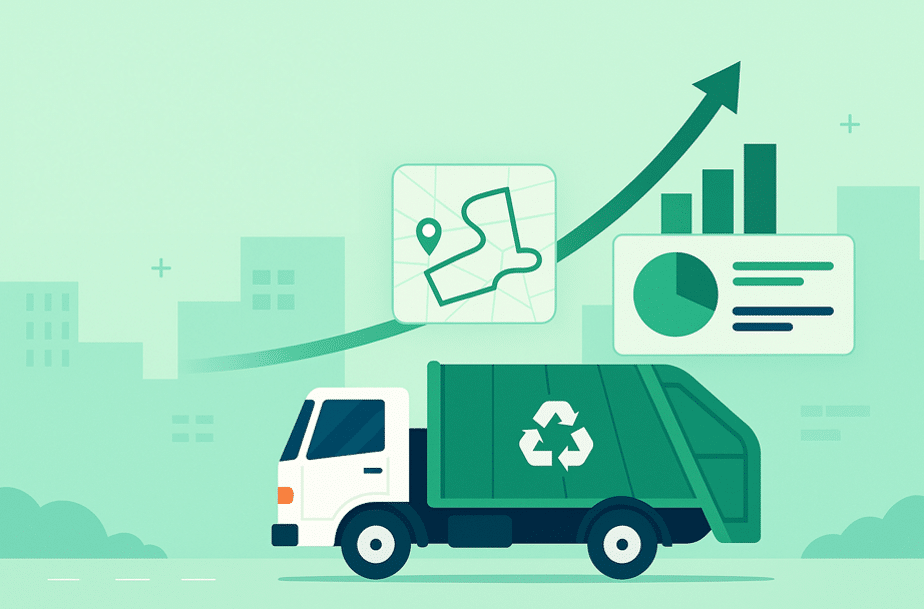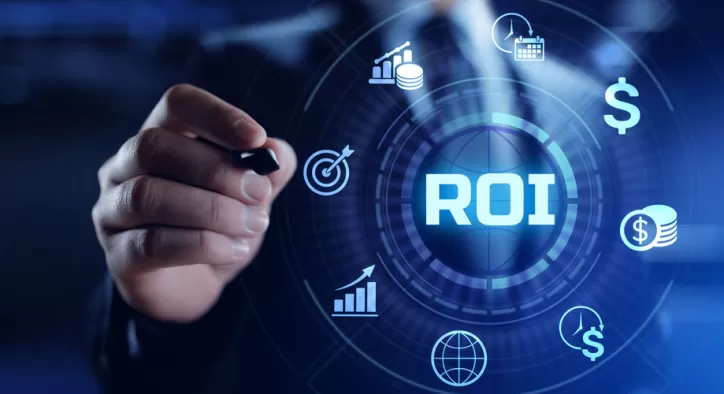Waste & material traceability solution for sustainable facilities

Waste has long been treated as a cost center. Trucks, bins, contractors, invoices — for decades, the focus was on moving waste out of sight at the lowest possible cost. But in 2025, the equation has changed. Waste is now central to how municipalities, private operators, and recyclers prove compliance, maintain service quality, and operate efficiently. The question is no longer should we digitize operations? but which waste management software will deliver measurable ROI? This article explores what waste management software ROI looks like in practice, the drivers that create measurable value, and why the right platform is a strategic investment rather than a simple operational tool.
Across the sector, the pressures on waste management are multiplying. Regional and national frameworks — from waste transfer note requirements and pay-as-you-throw (PAYT) models to extended producer responsibility (EPR) schemes — demand transparent reporting and verifiable traceability. Operational costs for fuel, labor, and compliance continue to climb. Meanwhile, stakeholders — whether citizens, regulators, or commercial clients — expect reliable service delivery and transparency.
Manual spreadsheets, paper manifests, and fragmented point solutions can no longer keep up. The waste management software market reached $2.1 billion in 2024, and adoption is accelerating as operators realize that the cost of inaction is higher than the cost of investment.
Waste management software is not just a reporting add-on — it is an operational backbone that typically pays for itself within 12–18 months. Municipalities, contractors, and recyclers that adopt enterprise-grade systems consistently report:
ROI comes not only from direct savings (fuel, labor, avoided penalties) but also from indirect gains: fewer disputes, stronger service reliability, higher client and citizen trust, and the ability to scale services without scaling headcount.

Operational Efficiency at Street and Site Level
The fastest wins come from routing and execution. Intelligent route optimization trims mileage and idle time; guided navigation helps new drivers hit SLAs; live exceptions (blocked access, overloaded containers, contamination flags) flow into the back office instantly. At material recovery facilities or transfer stations, digitized inbound/outbound flows and weighbridge data reduce bottlenecks and reconcile inventory faster.
Compliance, QHSE, and Audit Readiness
Whether under regional environmental laws or local PAYT models, audit-ready documentation is non-negotiable. Digital service proofs, time/geo stamps, waste codes, and chain-of-custody records reduce inspection risk and free teams from paperwork. Many organizations find that avoided penalties alone justify the platform.
Data for Decisions
Operational dashboards let planners compare routes, crews, and service zones by cost-to-serve, service reliability, complaint trends, and fill-level behavior. With this visibility, managers rebalance workloads, adjust frequencies, and renegotiate contracts with evidence — not estimates.
Material Value and Recovery
When pickups, weights, and contamination are tracked consistently, recyclers and brokers protect commodity value. Clean, batched flows support better prices and predictable offtake — and in many cases unlock new revenue by bringing secondary materials reliably to market.
Without a connected platform, problems remain invisible until they become costly: trucks run half-empty or out of sequence; citizen requests sit unresolved; subcontractor invoices don’t match service reality; batch paperwork is incomplete when an inspector asks. Meanwhile, the back office is stuck reconciling data across multiple systems. In 2025, those hidden costs — and the reputational risk from missed SLAs — are simply too high.
Instead of one “tool,” Evreka provides a connected suite designed for the daily reality of municipalities, waste companies, brokers, and recyclers. The result is compounding ROI: efficiency in the field, accuracy in the back office, and confidence during audits.
Evreka360 is the core platform for managing waste collection, fleet, assets, and citizen or client services in one place. Municipalities and contractors use it to plan and execute routes, manage bins and containers, handle citizen requests, and track service performance in real time. Customers regularly report up to 30% lower operating costs, ROI within six months, and a sharp reduction in manual errors through automation.
WasteForm replaces paper manifests with secure, digital waste transfer documentation. Approved in markets like the Netherlands, it provides inspection-ready records while cutting compliance preparation time by as much as 70%. For operators handling multiple streams and facilities, it ensures traceability and reduces disputes with regulators or partners.
EvrekaCommercial gives smaller collectors and brokers professional tools without heavy IT costs. By consolidating contracts, orders, subcontractor management, and invoicing, it prevents revenue leakage and provides transparent oversight across B2B services.
EvrekaAI adds an intelligence layer to field operations. Using recognition technology, it detects fly-tipping, hazardous gas cylinders, or contamination during collection. This reduces incidents, improves worker safety, and ensures recycling streams remain clean and valuable.
Together, these solutions form a digital backbone that turns waste from a cost burden into a measurable source of efficiency, compliance, and new value.
Regional frameworks and global directives continue to evolve, demanding better traceability, faster reporting, and clearer verification of service execution. Evreka’s roadmap tracks those shifts so operators don’t have to. As new modules and standards advance — from AI-driven routing to fully digital documentation — the value of the platform increases. ROI isn’t a one-off event; it’s a flywheel that accelerates with every update and dataset added.
For municipalities, public service providers, private collectors, brokers, and recyclers, waste management software ROI is no longer a side benefit — it is the reason to modernize. With Evreka’s connected solutions, operators reduce cost-to-serve, prove every service delivered, protect worker safety, and transform material flows into dependable value streams.
If your teams are ready to move beyond paper, point solutions, and blind spots — and operate with confidence that every decision is backed by reliable, actionable data — it’s time to see Evreka in action.
Request a demo to see how Evreka’s smart recycling solutions can improve your sustainability program and drive measurable circular economy results.
Learn more about our comprehensive smart waste management solutions and explore additional success stories from our circular economy partnerships